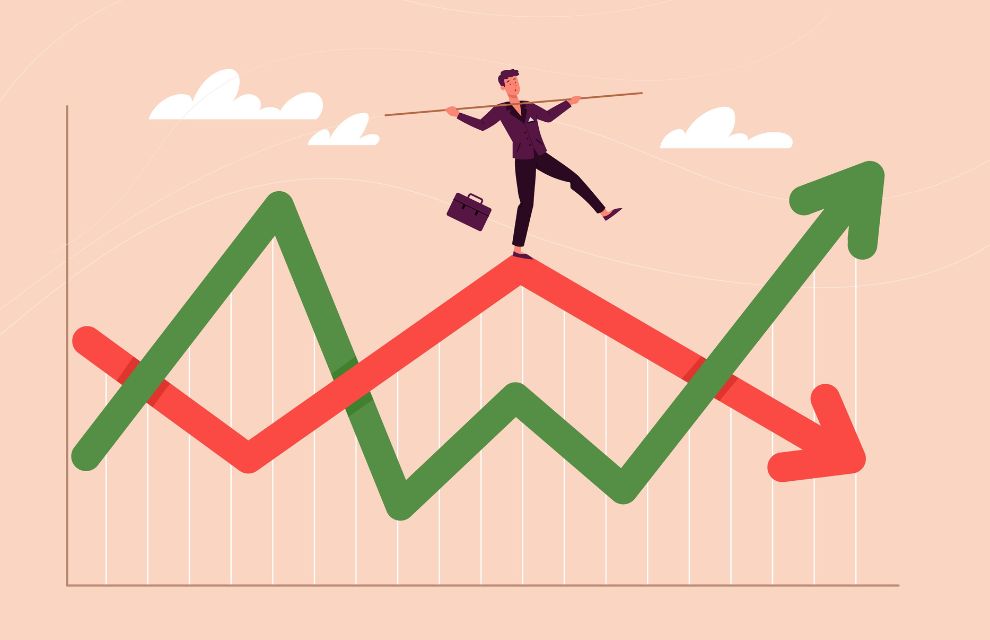Firms must prepare for volatile markets, say LDX panellists
12 October 2022 UK
 Image: Rudzhan
Image: Rudzhan
Artificial intelligence (AI) will be vital in firms’ preparations for market volatility, panellists at this year’s Linedata Exchange Conference (LDX) said.
The panel, entitled ‘State of the Market and Linedata Update’, discussed market trends and the impact of several major global events over recent years, and considered what firms need to do to be ready for volatile and unpredictable market conditions.
With the job market in flux and many companies struggling to retain talent, Bob Moitoso, head of asset management for North America at Linedata, stated that employees no longer want to spend their time completing menial, manual processes that could be completed by AI.
Timothée Raymond, head of innovation and technology at Linedata, suggested that AI will shape the industry in the coming years. If employees are completing value-added tasks instead of manual processes that AI are capable of, it will be easier for companies to maintain their workforce while also improving data quality, he said.
Anup Kumar, executive vice president and business head for Linedata global services, agreed, emphasising the importance of AI and machine learning. Alongside this, he highlighted the importance of cybersecurity, stating that “the threat landscape has changed quite a bit,” something that firms need to prepare for.
Considering rapid technology developments Moitoso argued that companies must strike a balance between getting the most out of the systems they already have in place and adding in new efficiencies.
Looking more closely at the technology landscape, Raymond stated that the industry has been more prepared for the challenges it has faced over the past few years due to early investment in technology that may not have initially been seen as particularly beneficial. He said that revolution requires an “unsolvable problem” and “new technology”, two variables which have been available in abundance over recent years.
Moitoso went on to emphasise the importance of client feedback gathered over the COVID-19 pandemic. Industry challenges identified included data availability for end users, particularly “non-traditional end users” who generally do not have access to the information needed for them to make “faster, quicker, and more informed decisions”.
He has also seen demand for critical systems to be backed up separately to businesses’ operations due to increasing concerns around hacking and cybersecurity.
Global geopolitical events have had significant consequences on both a personal and market level, but companies are finding new solutions to deal with the challenges that these bring. In spite of troubling market conditions, the panellists concurred that there are measures that firms can put in place to prepare for volatility.
The panel, entitled ‘State of the Market and Linedata Update’, discussed market trends and the impact of several major global events over recent years, and considered what firms need to do to be ready for volatile and unpredictable market conditions.
With the job market in flux and many companies struggling to retain talent, Bob Moitoso, head of asset management for North America at Linedata, stated that employees no longer want to spend their time completing menial, manual processes that could be completed by AI.
Timothée Raymond, head of innovation and technology at Linedata, suggested that AI will shape the industry in the coming years. If employees are completing value-added tasks instead of manual processes that AI are capable of, it will be easier for companies to maintain their workforce while also improving data quality, he said.
Anup Kumar, executive vice president and business head for Linedata global services, agreed, emphasising the importance of AI and machine learning. Alongside this, he highlighted the importance of cybersecurity, stating that “the threat landscape has changed quite a bit,” something that firms need to prepare for.
Considering rapid technology developments Moitoso argued that companies must strike a balance between getting the most out of the systems they already have in place and adding in new efficiencies.
Looking more closely at the technology landscape, Raymond stated that the industry has been more prepared for the challenges it has faced over the past few years due to early investment in technology that may not have initially been seen as particularly beneficial. He said that revolution requires an “unsolvable problem” and “new technology”, two variables which have been available in abundance over recent years.
Moitoso went on to emphasise the importance of client feedback gathered over the COVID-19 pandemic. Industry challenges identified included data availability for end users, particularly “non-traditional end users” who generally do not have access to the information needed for them to make “faster, quicker, and more informed decisions”.
He has also seen demand for critical systems to be backed up separately to businesses’ operations due to increasing concerns around hacking and cybersecurity.
Global geopolitical events have had significant consequences on both a personal and market level, but companies are finding new solutions to deal with the challenges that these bring. In spite of troubling market conditions, the panellists concurred that there are measures that firms can put in place to prepare for volatility.
NO FEE, NO RISK
100% ON RETURNS If you invest in only one asset servicing news source this year, make sure it is your free subscription to Asset Servicing Times
100% ON RETURNS If you invest in only one asset servicing news source this year, make sure it is your free subscription to Asset Servicing Times



.jpg)